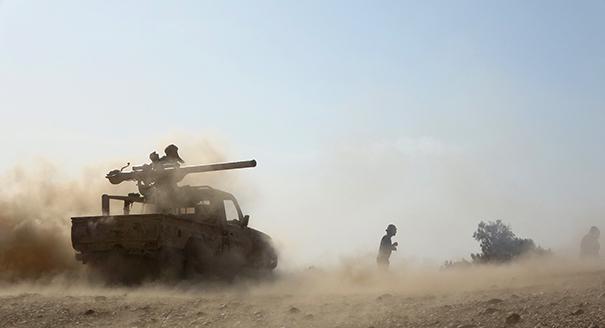The diplomatic crisis between Lebanon and several Gulf states has little to do with the remarks of George Qordahi prior to his appointment as Lebanese information minister, in which he criticized the Saudi-led war in Yemen. Its main cause is Hezbollah’s growing role in Yemen and the party’s impact on the faltering talks in Oman between Saudi Arabia and Ansar Allah, better known as Houthis.
In the aftermath of Qordahi’s comments, Saudi Arabia withdrew its ambassador from Beirut and asked Lebanon’s ambassador to leave the kingdom. Riyadh had also indefinitely banned all Lebanese agricultural imports starting last April, after Captagon pills were found in a consignment of Lebanese pomegranates. The most recent Saudi actions were replicated by Bahrain, Kuwait, and the United Arab Emirates. While Qordahi’s remarks were a pretext for the Gulf states’ actions, their moves appeared to be premeditated and reflected growing Saudi displeasure with Hezbollah’s dominant position in Lebanon, as well as the group’s regional role on Iran’s behalf.
Saudi Arabia has long played a vital role in Lebanese affairs, and in 1989 it hosted the Taif conference that led to an agreement on a new constitution. After the assassination of Lebanon’s former prime minister Rafiq al-Hariri in 2005, which was followed by the withdrawal of the Syrian army from the country, Hezbollah’s role grew, putting Saudi-backed groups, including Sunni political parties, on the defensive. At the same time, Hezbollah became more active regionally, intervening in Syria to bolster President Bashar al-Assad’s regime and supporting Iran-backed Shiite movements elsewhere.
Hezbollah’s involvement in neighboring Yemen was of particular concern for the Saudis. The Saudi-led coalition’s military campaign against the Houthis, after they had seized control of Sanaa in September 2014, led to increased military cooperation and coordination between the Houthis and Hezbollah. Hezbollah took on several functions, including directly supervising the political, military, and media affairs of the Houthis. There have also been reports of involvement by Hezbollah military experts in Yemen.
The key question today, then, is why did Saudi Arabia escalate the crisis with Lebanon, when Hezbollah’s hostility toward the kingdom was known? A principal reason appears to be Hezbollah’s assistance to the Houthis in their ongoing offensive against oil-rich Ma’rib Governorate, the last stronghold of the Saudi-backed government of President Abd Rabbo Mansour Hadi. In recent weeks, the Houthis have taken over districts in the southern part of the governorate and have advanced towards the city of Ma’rib. Saudi media outlets have accused Hezbollah of providing military support to the Houthis.
For Riyadh, if Ma’rib were to fall it would pose two major threats. First, it would greatly strengthen the Houthis and, therefore, make them far less likely to accept political compromises that fall short of recognizing their full control of Yemen. And second, the consolidation of Houthi rule on Saudi Arabia’s southern border could potentially allow the Houthis, and beyond that Iran, to use Yemen as a pressure point against the kingdom in the future.
In a recent round of negotiations between Riyadh and Houthi representatives in Muscat, Oman, in which the Omani mediator reportedly made significant progress, the Houthis refused to put an end to their offensive in Ma’rib. On the contrary, they stepped up their attacks in order to enter the city before an agreement. According to reports, Hezbollah’s leadership pushed the Houthis not to compromise with the Saudis before the fall of Ma’rib, so as to be able to transform their victory into political gains. The battle for Ma’rib is of central importance to Iran and Hezbollah, and the party’s secretary general, Hassan Nasrallah, has mentioned it repeatedly.
Amid this crisis, two questions remain paramount for Lebanon. The first one is whether the Saudi dialogue with Iran that has taken place in Baghdad can continue under the present circumstances? Might those talks be adversely affected by recent developments on the Lebanese front? Or, conversely, might Saudi retaliation against Lebanon lead to progress in Yemen, in that Saudi Arabia would impose a quid pro quo in which it would reverse its measures against Lebanon in exchange for a settlement with the Houthis?
And the second question is how might the consequences of the battle for Ma’rib affect Lebanon? If the Houthis were to win, this would undoubtedly lead to an extension of Lebanon’s isolation by the Gulf states, at least until Saudi Arabia reached an agreement with the Houthis, which could take time. On the other hand, if the Houthis were prevented from taking Ma’rib, and talks in Oman advanced, this could have a positive impact on the Lebanese situation.







